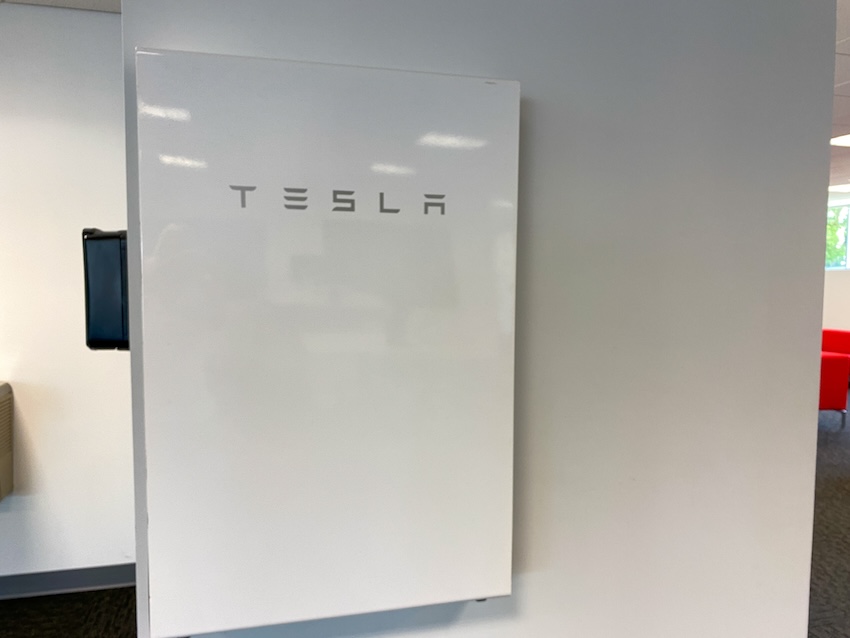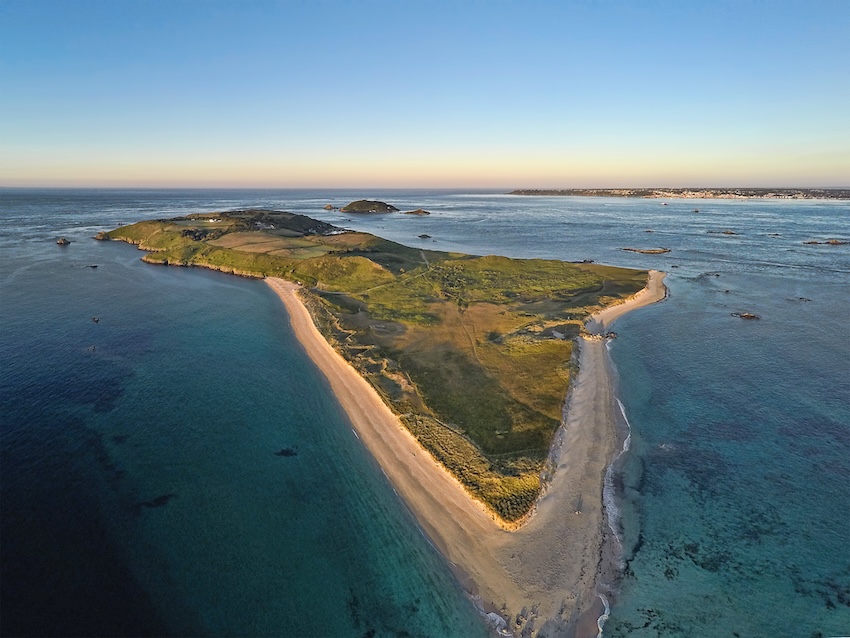

A Tesla charger installed too high, an obstructed view from the swimming pool, and solar panels that ruined the clean lines of a house have led to an architect being suspended for two years.
In a recently published judgment, the Architects Registration Board found Jamie Falla - from Guernsey but now based in Jersey - had demonstrated unacceptable professional conduct in the construction of a property that was due to cost £2m to build, but went more than £9m over budget.
Mr Falla, whose work has been described as "award-winning", had been brought on board to build a "minimalist" and "sharp" house for his client to retire in.
The client had bought a property called 'Sea Lodge' at Fort George, which was renamed 'Lighthouse' in 2018. It is described online as being "located on a dramatic cliff".
Initially, Mr Falla quoted fees of £80,000 as an initial fee and then £400 a day, making it a "high value project".
Mr Falla and his client disagreed over fees, which became "a significant issue" in 2017. Eventually, they eventually agreed on a £218,000 fee.
Pictured: The entrance to the Fort George estate.
The relationship between Mr Falla and the client broke down completely in September 2017, according to the ARB.
However, work on the house continued in 2018.
It was in November 2018 that the client started putting in a number of complaints.
The ARB found that the architect had failed to issue "adequate terms of engagement".
Mr Falla was then said to have provided "at least three different versions of events" to the ARB, including that he had sent a letter of engagement to his client.
The ARB also found that he had missed deadlines because he had not taken on central project management, despite the client telling him: "I expect my architects to coordinate and oversees (sic) the contractors and the consultancy team.
"That is what I would expect."
Though the building was unfinished, the client moved in and found "a number of issues with the design of the property", which led to the preparation of a legal claim. He settled with Mr Falla in August 2019.
"Further issues" were then identified, the ARB said, and, again, these became the subject of legal proceedings. A quantity surveyor, brought on board by the client, said these would cost around £800,000 to repair.
The issues included an asymmetry in a glass bridge that formed part of the building as well as an absence of builders' holes, "the absence of a power socket in the massage room", and "incorrectly detailed cladding" for LEDs.
The ARB also found that Mr Falla should have included a "solar gain coating" on the external glazing, which he had advised against. But the building also did not have air conditioning and some of the windows couldn't be fully opened. The client wanted to live in a "sealed box", Mr Falla said.
The ARB wrote: "In any event, the Referrer was left with a property that he could not use as he wished. If he used the ventilation methods suggested by the Registered Person it impacted on his enjoyment of the Property, as air passing through the Property caused disruption; for example, by blowing papers off his desk in his study."
The client also complained that four solar panels were visible and that they "detract from the clean lines of the house".
The ARB found that Mr Falla should have warned his client that this was a risk.
A Tesla Powerwall – an at-home Tesla charger – was installed 2.2 metres above the ground, the client complained, and he could not reach it.
Also included in the house was a "magazine", described as "a historic underground room", which developed damp issues after the building work.
According to the ARB, the architect had "sought to distance himself from any involvement from the magazine", but had advised on services and flooring, but failed to recommend a damp survey.

Pictured: The Tesla charger was said to be too high up.
Mr Falla had shown his client a sketch of the swimming pool which included a sea view with Herm in the distance. However, it became clear later that trees on a neighbouring property would obstruct the view.
The client told Mr Falla: “I am hoping for a clearer, more panoramic view from the pool end. I assume we can trim the trees to achieve this.”
The view from the swimming pool, according to the ARB's committee, was "a fundamental design feature" and that whatever happened to the trees would have needed some negotiation with the client.
The property's gate was also unable to close properly due to the electronic closing device not being strong enough, as Mr Falla had not found out about the weight. Another device had to be ordered in.
Other complaints related to an apparent lack of updated drawings, an extra charge for burying induction coils, and a disagreement over the details of the house's cladding.
Another individual who was due to work with Mr Falla made a complaint to the ARB. They later said that he had been "confrontational and non-productive" in correspondence.
The ARB found that Mr Falla had included, in the settlement, a condition that required the client to ask for his consent before sharing information about the build.
He allegedly tried to use this later to stop his client from complaining to the ARB.
In his response, Mr Falla strongly disputed the claims made against him.

Pictured: Drawings suggested there would be a view of Herm from the pool. (Herm Island)
He maintained that he had "acted professionally throughout the project", and said that the client had at one point "threatened to throw him off a second-floor balcony".
He also said that the client had repeatedly called him and been "unhappy" if he had taken any trips away.
The ARB found that Mr Falla had "demonstrated a lack of integrity" when he tried to stop complaints from being raised, and that he had been dishonest during the complaints process.
They found that he had "only limited insight into his conduct" and that a suspension order would "re-affirm to [Mr Falla], the profession, and the public the standards expected of a registered architect".
The building, according to the ARB, remains unfinished.
Comments
Comments on this story express the views of the commentator only, not Bailiwick Publishing. We are unable to guarantee the accuracy of any of those comments.